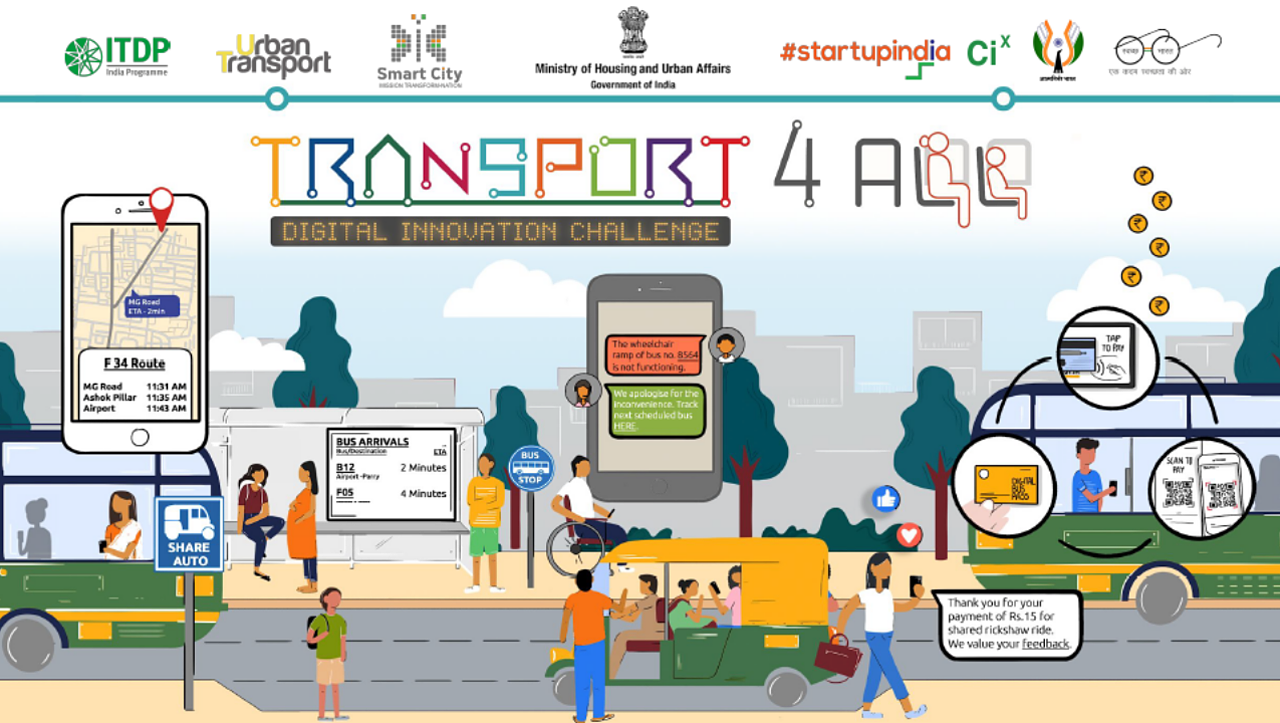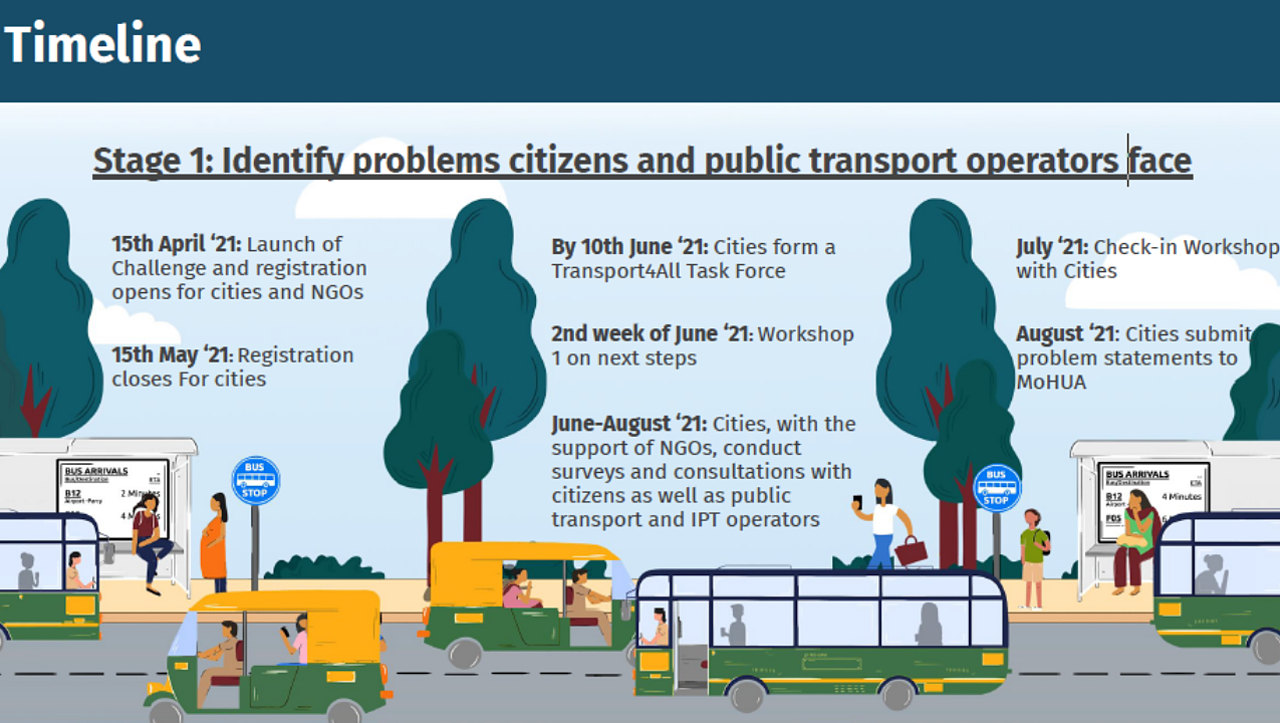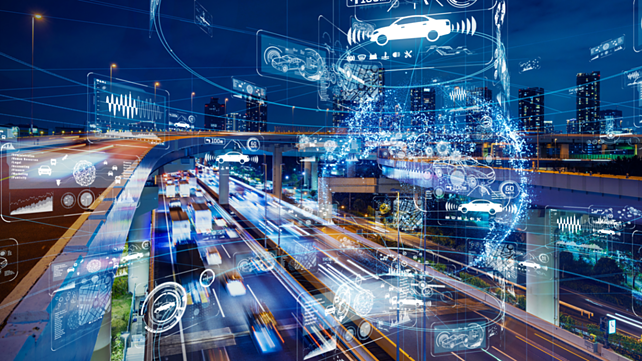
As part of Prime Minister Narendra Modi’s grand vision of setting up 100 smart cities in the country – an initiative launched in 2015 – the National Smart Cities Mission, under the Ministry of Housing and Urban Affairs (MoHUA) has been undertaking a few interesting programmes.
As was envisioned, cities under the smart cities mission aims to offer good quality of life to the citizens through smart solutions. Assured power and water supply, adequate sanitation and solid waste management, connected solutions through the use of internet, e-governance and an efficient urban mobility and public transport system are top on the government’s agenda.
In the current context, the Indian transport infrastructure is grossly inadequate. While the demand for a sustainable solution to the urban mobility woes has been doing the rounds for years, any integrated approach has yet not seen the light of the day.
In fact, a ‘smart’ city can benefit tremendously from enhanced mobility and transportation solutions, including reduced congestion, improved air pollution, shorter times spent on the road and increased productivity.
Transport4All
Among a bunch of initiatives undertaken by the MoHUA, one interesting programme is called Transport4All.
It is essentially a challenge that aims to bring together cities, citizens, and start-ups to develop solutions that improve public transport to better serve the needs of all citizens. This challenge will enable cities bring large-scale transformation in the public transport sector by working with citizens and start-ups to resolve the most critical challenges that our cities are facing in the present context.
The entries received for the Transport4All challenge will be validated and taken through rigorous iterations by the ministry with the help of World Bank, which is supporting this initiative, and various experts, who are part of the larger jury. The Smart Cities Mission is also considering cash rewards for the winning entries, a MoHUA official confirmed to Mobility Outlook.
As a next step in the process, registered cities have been asked to form a Transport4All Task Force (TTF) to encourage ownership from all agencies and organisations to facilitate seamless coordination and leverage complementary strengths of the various agencies.
A letter issued by Kunal Kumar, IAS, JS, MoHUA has requested cities to set-up a TTF before June 10, 2021. A workshop is also likely to be scheduled in the second week of June to guide the TTF members on the next steps, the letter said.

The TTF would be constituted of experts from the transportation sector, automotive sector, NGOs and other critical stakeholders of the society, including social enterprises, research and academic institutions.
Other major initiatives
The Smart Cities Mission is focussed on building a holistic network of public transportation solutions in cities, including buses, trains and autos, for example. In addition, there is focus on building a robust intelligent transportation system (ITS) that can be rolled out nationally. Certain Indian cities have built interesting ITS solutions, but they aren’t built to serve the entire country, the MoHUA official said.
One of the other critical components of the Smart City Mission is the Integrated Command and Control Centre (ICCC). The ICCC would offer critical interventions with regards to ITS and signal coordination in smart cities. While every smart city would have an ICCC of their own, there is a nationally run ICCC as well, which monitors the progress made in these smart cities.

The real application of ICCC is in the cities, the official said. It would help the city monitor all aspects – be it water, solid waste, traffic and even e-governance. The MoHUA is creating these guidelines with the help of the Bureau of Indian Standards (BIS) and are providing these guidelines to the cities.
Round-Up
The onus on building a good smart city lies with the city itself. The MoHUA doesn’t dictate projects to cities, but offers them the freedom to pick up projects that are relevant to that particular city and one that promises the overall good for its citizens.
There is focus on building smart streets that will have more ICT interventions. They will be more pedestrian and non-motorised transport (NMT) friendly. The official harped on the fact that smart cities are being developed for citizens from all walks of life, and not just motorists.
There are two important initiatives in this regards – Cycle4Change and Streets4All. Many smart cities across the country have built facilities to promote cycling and other NMTs, and have created walk ways for pedestrians.
For now, under the Transport4All initiative, the MoHUA would select about 10 to 20 ideas from the challenge, and help create a pilot there. The idea is to pick up cities from different regions, and come up with a holistic solution for the whole region. For example, if a solution for Kanpur comes up, then other cities in the state of Uttar Pradesh can adopt that model.